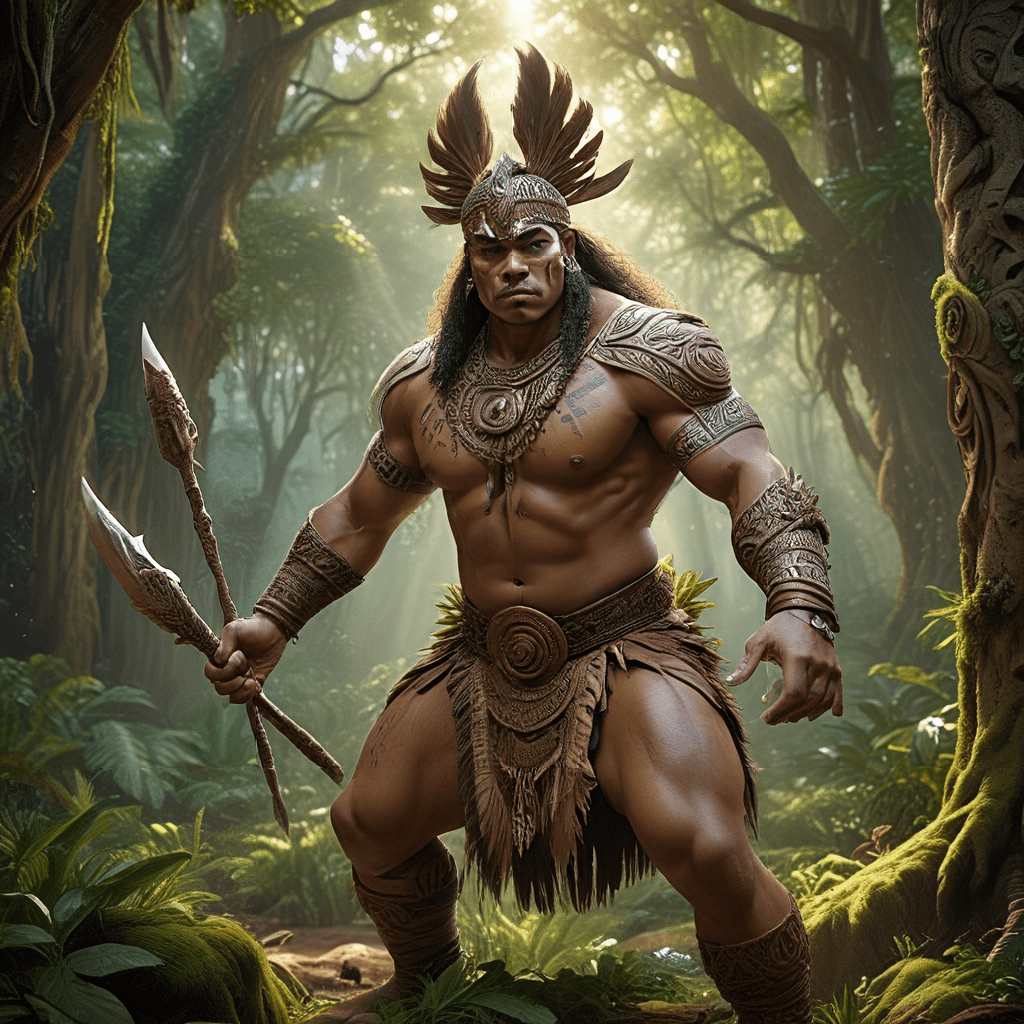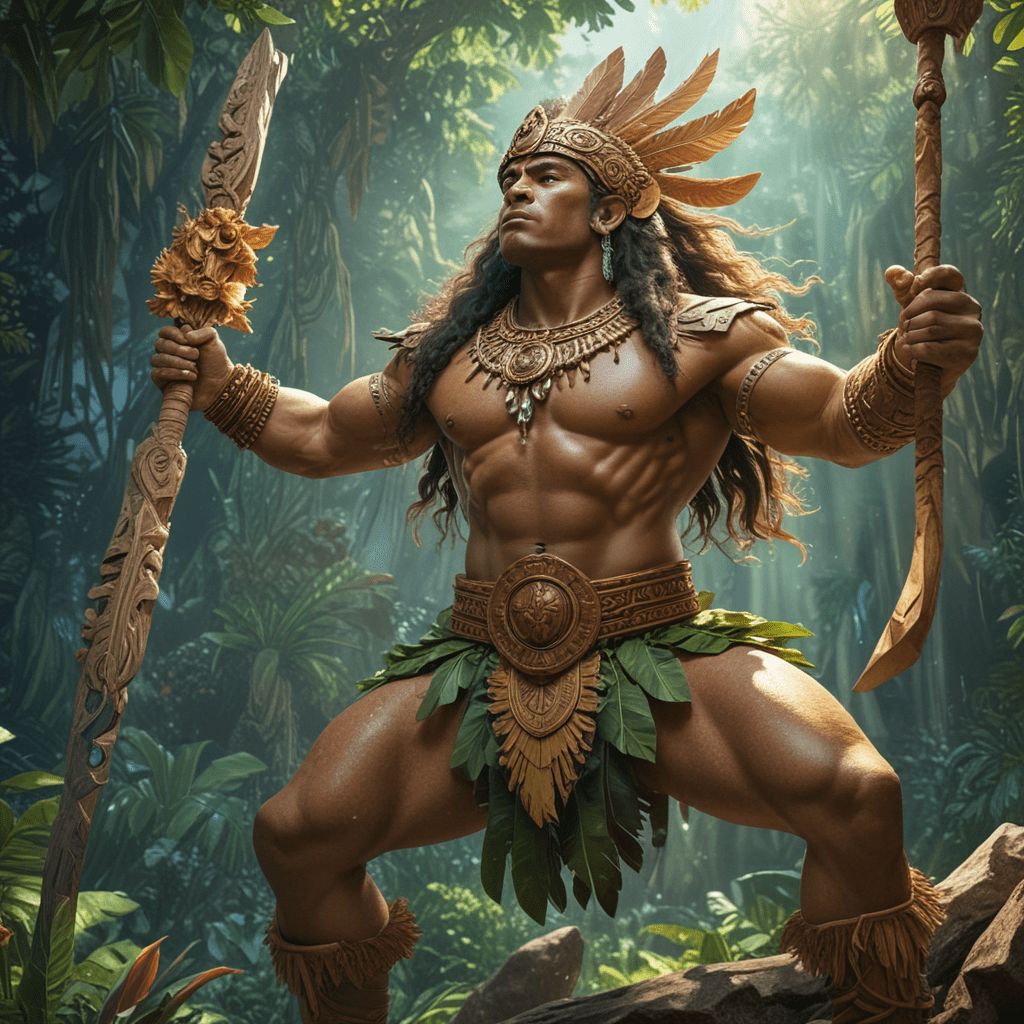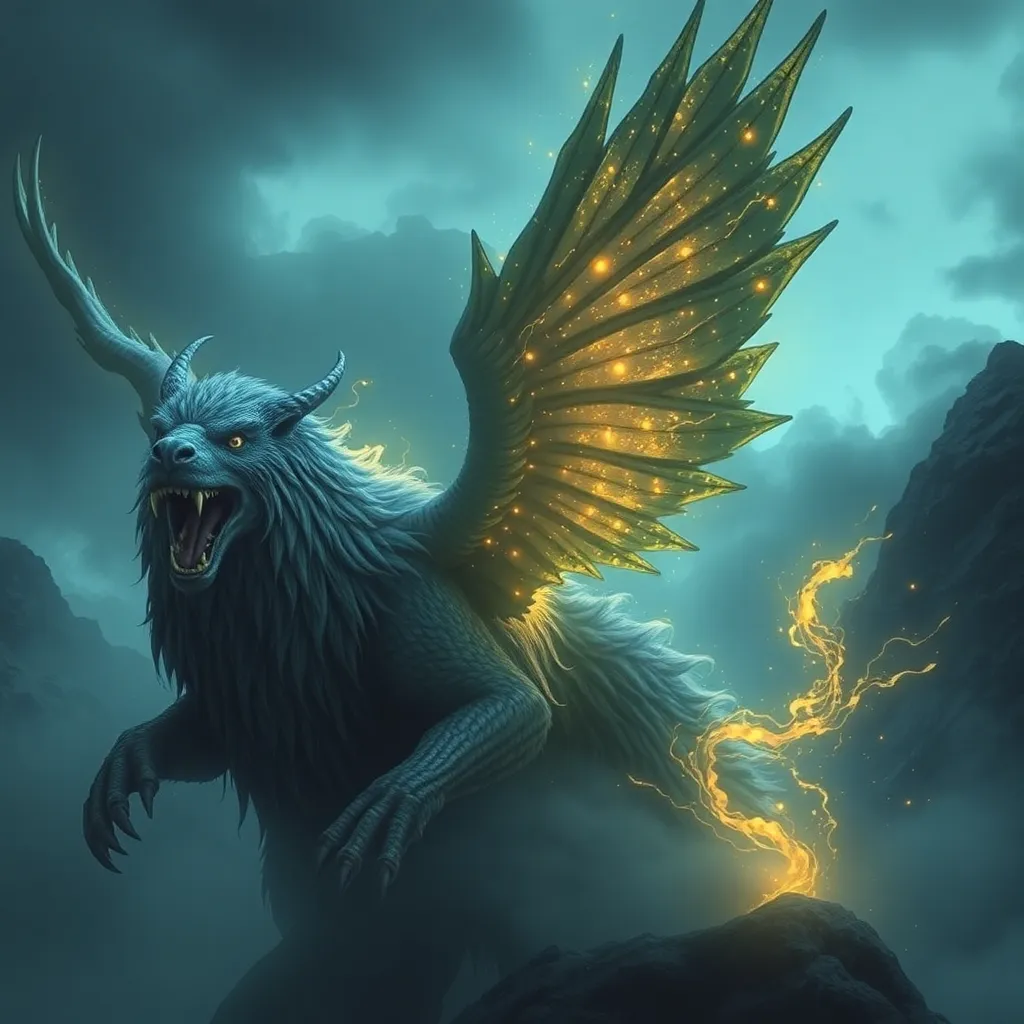The Essence of Mana: A Vital Force in Maori Cosmology
In the rich tapestry of Maori culture, a potent concept lies at the heart of their worldview: mana. Mana is not merely a word; it's a fundamental belief that permeates every aspect of Maori life, from their creation myths to their social structures. Mana is a powerful force, an intrinsic energy or life force, that resides within individuals, objects, and the natural world. It's the essence of power, authority, and influence, shaping the very fabric of Maori society.
The concept of mana is deeply intertwined with Maori cosmology, their understanding of the origins and nature of the universe. At the heart of Maori creation myths lies the story of the great god, Tāne, who separated the heavens from the earth, bringing forth the world we know. This act of creation imbued Tāne with immense mana, a power that he passed down to his descendants, the first humans. This lineage-based transmission of mana is a cornerstone of Maori belief, connecting individuals to their ancestral heritage and the source of their inherent power.
Mana is more than just an abstract notion. It's a tangible force that can be felt and observed. It manifests in the power of a skilled warrior, the wisdom of a respected elder, or the beauty and strength of a sacred mountain. Mana is a dynamic entity, something that can be gained, lost, or even stolen. Understanding mana is essential to truly grasp the intricate workings of Maori society, their rituals, and their interconnectedness with the natural world.
The Manifestation of Mana: In Objects, People, and the Natural World
Mana is not confined to the realm of the spiritual or intangible; it's also evident in the physical world around us. Objects imbued with mana, known as taonga, hold a special significance in Maori culture. These treasured possessions can include ancestral weapons, tools, or ornaments, each imbued with the mana of its creator or previous owner. The mere act of touching a taonga can invoke a sense of respect and awe, reminding those present of the powerful lineage it represents.
Beyond objects, mana is also evident in people. Chiefs, who are often descendants of revered ancestors, possess a significant amount of mana. Their words carry weight, their decisions are respected, and their actions can have a profound impact on their communities. But mana is not exclusive to chiefs; warriors, priests, skilled healers, and even ordinary individuals can acquire mana through their actions, achievements, and personal qualities.
The natural world, too, is imbued with mana. Mountains, forests, rivers, and even the very air we breathe are viewed as sources of power and inspiration. Certain locations, like sacred burial grounds or ancestral sites, are particularly potent with mana, demanding respect and reverence from those who enter. The Maori believe that all living things, from the smallest insect to the largest whale, possess a degree of mana, reflecting the interconnectedness of life.
The Source of Mana: Ancestry, Deeds, and The Supernatural
Mana, like a precious heirloom, is passed down through generations. It’s inherited from ancestors, a legacy of achievements and virtues that flows through bloodlines. Grandparents, parents, and ancestors contribute to the mana of their descendants, shaping their character and potential. A person born into a lineage of renowned warriors might inherit their ancestors' courage and strength.
However, mana isn't solely determined by lineage. Individuals can acquire mana through their own deeds and actions. Acts of bravery, wisdom, leadership, and service to the community all contribute to a person's mana. By demonstrating these qualities, an individual can increase their own mana, gaining recognition and respect from others.
The supernatural realm also plays a vital role in the acquisition of mana. In Maori mythology, deities known as atua are powerful beings who can bestow or withdraw mana. Atua can offer their mana to those who show them respect and honor, but they can also punish those who disrespect their domain or violate sacred taboos. The relationship between mana and atua is complex, filled with both reverence and caution.
The Role of Mana in Social Hierarchy and Leadership
Mana is a fundamental factor in the social hierarchy of Maori society. The amount of mana a person possesses directly affects their status and influence within the community. Chiefs, with their inherited mana and proven leadership, occupy the highest status. Their mana legitimizes their authority, providing them with the power to make decisions, lead battles, and guide their people.
However, mana is not static. It can fluctuate based on an individual's actions, words, and even their health. A chief who abuses their power, makes poor decisions, or engages in immoral behavior can lose their mana, weakening their authority and potentially leading to their downfall. As a result, chiefs are held accountable by their people, ensuring that those with the greatest mana are those who deserve the leadership role.
Mana also plays a significant role in decision-making within tribes and communities. Leaders can rally their people by appealing to their shared mana, reminding them of their ancestral heritage, and the importance of collective action. Within tribal councils, the person with the greatest mana often holds the most sway, their opinions weighing heavily on the decisions of the group.
Mana and Ritual Practices: Maintaining and Enhancing Power
Rituals and ceremonies are central to maintaining and enhancing mana in Maori culture. Through carefully choreographed dances, chants, and offerings, Maori people connect with their ancestors, the atua, and the natural world, drawing upon these forces to strengthen their own mana.
Ceremonies involving taonga, such as ancestral weapons or carved figures, serve to channel the mana of those objects into the community. The act of sharing a feast, for instance, is not just a social gathering but a way of strengthening the mana of the group.
Furthermore, the concept of tapu, which translates to "sacredness," is closely intertwined with mana. Tapu is associated with things that possess a high degree of mana, making them both powerful and potentially dangerous. Rituals are often used to manage tapu, to ensure that these sacred objects and spaces are treated with the respect they deserve.
By participating in these ceremonies, the Maori people affirm their connection to the powerful forces of mana, ensuring their own well-being and the strength of their communities.
The Role of Mana in Social Hierarchy and Leadership
In Maori society, mana plays a crucial role in establishing and maintaining social order. It's like a currency of respect and influence, determining an individual's standing within the community. Those with high mana are seen as powerful and worthy of respect. This mana can be inherited from ancestors, a legacy of achievements and virtues passed down through generations. For example, a person born into a lineage of renowned warriors might inherit their ancestors' courage and strength, elevating their status within the tribe.
Chiefs, as inheritors of significant mana, occupy the highest positions within the society. Their mana legitimizes their authority, giving them the power to make decisions, lead battles, and guide their people. A chief's mana is a powerful tool, but it's not static. It can be gained or lost based on their actions and decisions. A chief who demonstrates wisdom, courage, and compassion will increase their mana, solidifying their position as a respected leader. However, a chief who abuses their power, makes poor decisions, or engages in immoral behavior can lose their mana, weakening their authority and potentially leading to their downfall.
Mana also plays a vital role in decision-making within tribes and communities. Leaders can rally their people by appealing to their shared mana, reminding them of their ancestral heritage, and the importance of collective action. Within tribal councils, individuals with high mana often wield the greatest influence, their opinions carrying significant weight in the decision-making process.
Mana and Ritual Practices: Maintaining and Enhancing Power
To maintain and strengthen their mana, Maori people engage in a variety of rituals and ceremonies. These practices provide a connection to ancestral spirits, gods, and the natural world, drawing upon these powerful forces to enhance personal and collective mana.
Traditional dances, chants, and offerings are central to these ceremonies, allowing individuals to connect with their ancestral heritage and seek guidance from the supernatural realm. For example, the Haka, a powerful war dance, is a ritual that channels the mana of ancestors and strengthens the warrior spirit of the performers.
Ceremonies involving taonga, sacred objects imbued with mana, further enhance the power of these rituals. These objects, which can include ancestral weapons, carved figures, or precious ornaments, serve as conduits for the mana of their creators or previous owners. The act of sharing a feast, a common ritual in Maori culture, is also a powerful way to strengthen the mana of the group, symbolizing unity, abundance, and the connection to the land.
Mana and Tapu: Understanding Sacredness
The concept of tapu, which translates to "sacredness," is closely intertwined with mana. Something possessing a high degree of mana is considered tapu, which means it is both powerful and potentially dangerous. Tapu is often associated with sacred objects, ancestral sites, or individuals holding high positions within the community. These things are treated with respect and reverence, acknowledging the power they hold.
For example, a burial ground, considered a resting place for ancestors, is tapu, demanding respect and caution from those who enter. Violation of tapu is considered a grave offense, capable of incurring the wrath of the gods or ancestral spirits. To manage tapu, Maori people engage in various rituals and ceremonies, ensuring that these sacred spaces and objects are treated with the appropriate respect and reverence.
By understanding the concept of tapu, we gain a deeper appreciation of the importance of mana in Maori culture. Tapu serves as a reminder of the interconnectedness of all things, the power of the supernatural realm, and the need for respect and reverence for sacred spaces and objects.
The Concept of Mana in Contemporary Maori Society
While the concept of mana is deeply rooted in traditional Maori beliefs, it continues to hold significance in contemporary society. The concept of mana continues to inform Maori values, social structures, and cultural practices.
The principles of mana are reflected in modern Maori leadership roles, where chiefs and community leaders are still expected to demonstrate wisdom, courage, and respect for ancestral traditions. Mana also remains a core concept in the Maori language, with words like "manaakitanga" (hospitality) and "whanaungatanga" (kinship) reflecting the values of interconnectedness, respect, and shared responsibility that are central to the concept of mana.
The concept of mana is also used to address contemporary issues facing Maori communities, such as environmental protection, social justice, and economic empowerment. By drawing upon the principles of mana, Maori people are seeking to revitalize their culture, protect their heritage, and shape a future where their values and traditions are respected and honored.
FAQ
What is the difference between Mana and Tapu?
Mana is a powerful life force that resides in objects, people, and the natural world. Tapu, on the other hand, refers to the sacredness or restriction associated with something that possesses a high degree of mana.
How is mana acquired?
Mana can be inherited from ancestors, acquired through deeds and actions, or bestowed by gods or spirits.
What are some examples of taonga?
Taonga are objects imbued with mana. They can include ancestral weapons, carved figures, tools, or ornaments.
Is mana a concept that is unique to Maori culture?
While the concept of mana is central to Maori culture, similar concepts of spiritual power or life force exist in other indigenous cultures around the world.
How does mana relate to the modern world?
The concept of mana continues to inform Maori values, social structures, and cultural practices in contemporary society. It is used to address contemporary issues facing Maori communities and to revitalize their culture.




